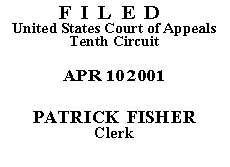

| LESTER L. NEWTON,
Petitioner-Appellant, v. JOSEPH PAOLINO, Warden of Centennial Correction Facility; KENNETH SALAZAR, Attorney General of the State of Colorado, Respondents-Appellees. |
|
Petitioner Lester L. Newton, a Colorado state prisoner convicted by a jury of various counts of burglary, kidnaping of a sexual assault victim, aggravated robbery, and assault, seeks a certificate of appealability (COA) to challenge the district court's order denying his petition for a writ of habeas corpus filed pursuant to 28 U.S.C. § 2254. See 28 U.S.C. § 2253(c)(1)(A) (no appeal unless COA issued). We deny issuance of a COA and dismiss the appeal.
The following is a summary of the underlying facts as stated in the decision of the Colorado Court of Appeals disposing of Newton's direct appeal:
[Newton] and three other armed men forced entry into the home occupied by the man and woman victims. Over the next several hours, they bound, beat, and terrorized the victims, while ransacking the house in search of money they believed to be present. The woman victim was taken to another bedroom where one of the men groped her genitalia and sodomized her with the barrel of his gun. . . . The robbers left after taking cash, jewelry and other items.
Appellant's App. vol. A, at 112.
On appeal, petitioner argues he is entitled to habeas relief on the following grounds: (1) during jury selection, the prosecution excused a prospective juror on the basis of race, in violation of Batson v. Kentucky, 476 U.S. 79 (1986); (2) the prosecution willfully withheld exculpatory evidence from the defense, in violation of Brady v. Maryland, 373 U.S. 83 (1963); (3) the trial court improperly allowed a police detective to testify that Newton was guilty and the victims were credible; and (4) the trial court's overt hostility to Newton and his attorney deprived him of a fair trial.
This case is governed by the Antiterrorism and Effective Death Penalty Act (AEDPA). Before a COA will issue, petitioner must make "a substantial showing of the denial of a constitutional right." 28 U.S.C. § 2253(c)(2). To do so, he must demonstrate "that reasonable jurists could debate whether (or, for that matter agree that) the petition should have been resolved in a different manner or that the issues presented were adequate to deserve encouragement to proceed further." Slack v. McDaniel, 529 U.S. 473, 484 (2000) (quotations omitted).
The district court held that petitioner had not exhausted his claims relating to the police detective's testimony and the trial court's hostility because he had not provided the state courts with a fair opportunity to apply controlling federal legal principles. As the district court correctly stated, these claims are procedurally barred unless petitioner shows cause and prejudice or a fundamental miscarriage of justice. Coleman v. Thompson, 501 U.S. 722, 750 (1991). In his reply brief, for the first time petitioner made an argument that he had exhausted these claims. We do not consider claims presented for the first time on appeal, Walker v. Mather (In re Walker), 959 F.2d 894, 896 (10th Cir. 1992), and we generally do not consider claims presented for the first time in a reply brief, Codner v. United States, 17 F.3d 1331, 1332 n.2 (10th Cir. 1994). Accordingly, we decline to consider petitioner's exhaustion arguments.
We have carefully reviewed the briefs and the appendix. For substantially the same reasons underlying the district court's June 29, 2000 order of dismissal, we conclude that petitioner "has failed to raise issues that are debatable among jurists, or that a court could resolve the issues differently, or that the questions deserve further proceedings." United States v. Sistrunk, 111 F.3d 91, 91 (10th Cir. 1997).
The application for issuance of a COA is denied. Appeal DISMISSED.
Entered for the Court
Circuit Judge
*. This order and judgment is not binding precedent, except under the doctrines of law of the case, res judicata, and collateral estoppel. The court generally disfavors the citation of orders and judgments; nevertheless, an order and judgment may be cited under the terms and conditions of 10th Cir. R. 36.3.